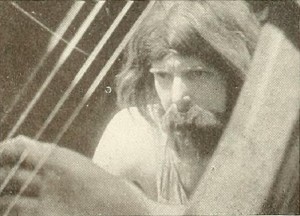"Effective film transitions spark an interesting story of a trip to Texas. The narration indicates careful preliminary research into the geology, history, economic and social conditions of this state." PSA Journal, Dec. 1955, 37.
"BC Packers (Western Canadian Whaling Ltd.) whaling operations, based at Coal Harbour in Quatsino Sound. The whaling vessel Polar V leaves on a voyage. Preparation of equipment, including harpoons and harpoon gun. A whale is sighted, pursued and harpooned; it struggles, dies, and is flagged. The onboard scenes continue, showing more harpoon preparation, hunting and killing of whales. Whale is towed to Coal Harbour, where the flensing, butchering and processing of the carcass is shown. The Polar V sets out again; in very rough seas, another whale is pursued and killed. " (BC Archives)
The Western Canada Whaling Company was a sub-division of British Columbia Packers Limited.
The filmmaker is not identified. Film begins with the credit "British Columbia Packers presents..."

"C. Manley DeBevoise continues, in That All the Earth May Know, the development of his special field of the exposition of Bible stories in film. Here is the tale of the tortured Saul, the worried Samuel and the God sent David — musician and warrior. Since the film is made by a Sunday School class, it is prefaced by a statement from the class's teacher that a "success story" of long ago will be presented. The actor who portrays Samuel achieves real dignity and importance: others are sufficiently convincing with very hard assignments. Costumes and sets are contrived excellently, and a Long Island, N. Y., locale does not seem to be out of place in the film. Mr. DeBevoise solved one problem by purely cinematic methods. He showed the combat of the Jews and the Philistines, but the Sunday School class did not run to an army. With six or seven couples in actual hand to hand fighting, these become an apparent host by multiple exposure. Mr. DeBevoise improves each year in direction, cinematography and in the greater sincerity of his actors' work." Movie Makers, Dec. 1941, 566.
"Library service in the Fraser Valley, funded by the Carnegie Corporation. Follows a bookmobile from community to community, and depicts various aspects of the library service. Shots of places visited, rural landscape, and the Agassiz-Rosedale ferry." (BC Archives)
The film was sponsored by the British Columbia Public Library Commission Of which H. Norman Lidster was chairman).
"Still others such as Dean Holt have produced [a] comedy, The Magic Pistol, a skit about how to cut the lawn." (Sharcott)
The Totem Group was a club within the Victoria Amateur Movie Club -- a sub-group of 16 mm users that banded together to produce their own film, The Princess and the Frog "... a nine-minute, black-and-white, sound-striped fiction story written by member Walter George." (Sharcott)
This film was produced at some time in the 1950s.
Total Pages: 299